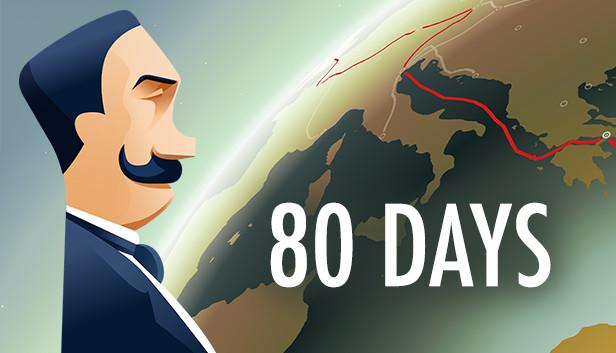80 Days is a game that I found a little difficult to fully immerse myself in until I was well into the game, and one that I struggled to understand what might be the “proper” or intended way of playing it was at the start. Part of it might have been due to the lack of onboarding and scene setting in the beginning — I jumped into the game with no prior knowledge or context about the game, and it threw me straight into the narrative where all I was told by this random character named Fogg was to pack my bags and depart for a trip. I wasn’t sure what the goal was, who I was, or who this Fogg guy was until I started getting into the game. Even once I started traveling from place to place, because my typical play-style of games is to skip through the dialogue and figure out on my own what it is that I have to do to progress in the game, I was still not really sure what was going on. I mainly focused on hyper-optimizing the resource of money, buying certain goods at stores that were marked as being valuable in other places and letting that dictate my route, rather than trying to optimize the route I should take to circumvent the globe as fast as possible. It was once I realized that the plot of the game that I had been skipping through IS what the majority of the gameplay focuses on that I started to reevaluate how I should be playing the game.
It was from Istanbul onwards that I became more intentional about engaging with the story. When I started actively reading the plot and engaging with the NPCs, I began to realize the prevalence of the theme of privilege. One of the most obvious representations of this theme is the protagonist’s relationship with Fogg — with Fogg being an upper class British man and Passepartout being his servant, the game uniquely focuses more on Fogg’s wellbeing than the protagonist’s. Only Fogg has a health bar, the goal of circumventing the globe is Fogg’s personal bet that Passepartout is merely accompanying him for, and the dialogue encourages for your relationship with Fogg to be an important resource that you need to keep in check. Much of Fogg’s actions and thoughts reflect exactly those of the upper class British imperialist mindset of the 1800s. And this doesn’t go for just Fogg as well — when you as Passepartout choose the option to explore the local cities, many of your thoughts regarding the local city and culture tend to have a disapproving, disdainful tone with comparisons to critical comparisons to Paris, your hometown. Not to mention the entire premise of the game being a journey only possible due to the personal wealth and credit of Fogg, which seems to be so high that there is no limit to the amount of money you can pull out from any bank anywhere you are. Even once the game ends in a scenario where you don’t make the trip in 80 days, Fogg’s life isn’t ruined — he just simply says that he’ll have to try again. 80 Days ended up being a game that despite the rocky start, made me think deeply about its themes of privilege and imperialism.



Hi Jiwon! I’m really interested by your observations, and glad I wasn’t the only one who noticed how privileged Fogg’s response was to not making the trip in 80 days. Personally, it felt so insensitive to all the work that Passpartout/you the player put into meticulously planning your trip. Regarding the engagement of the text, I wonder about how the game could be reworked in order to better onboard players so that they understand that reading the text is important. It certainly is important in order for us to pick up on the privilege of Fogg and Passpartout!
Hi Jiwon,
I definitely had a really similar experience to you haha — I also tend to glaze over when it comes to cutscenes and dialogue. I found it interesting how you initially noticed the thematics of privilege in Fogg, as I also think my growing annoyance with Fogg was something that caused me to notice the rest of the thematic elements. However, I did feel like the relationship with Fogg wasn’t nearly as substantiated in the game’s mechanics as it was in dialogue, as most of the time I was just massaging him to keep his health topped up and didn’t delve into it much further. I was curious to your thoughts on how the game might’ve been able to add more depth to his characterization and your relationship with him!
Hi Jiwon, it was really interesting reading your perspective and playstyle of the game. I think I do also tend to min-max and optimize, but I also try to absorb as much lore and story as possible when the game contains it. But still, I was also a little confused at my relationship with Fogg and think the game could have done a bit of onboarding us to the relationship and our surroundings a bit better.